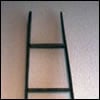On every day of the year, the three prayers of Shacharit, Mincha, and Maariv are recited. These prayers were instituted by the patriarchs and also recall the daily sacrifices in the Temple.
A fourth prayer, Musaf, is added on Shabbat and Festivals.
Yom Kippur is the only day in the year in which a 5th prayer is recited. This final prayer is called Neilah.
The Talmud1 bases this extra prayer upon two verses (Isaiah 1:15 and Samuel 1 1:12) each of which discusses the virtue of "praying at length." Yom Kippur is a day where we want this additional merit, pushing beyond the standard limits of prayer. In Talmudic times, Neilah was also said on other communal fast days.
The word "Neilah" means "closing." According to Rabbi Yochanan, this is because Neilah is recited at the time when the Temple Gates were closed for the day. Rav, however, said that this refers to the closing of the heavenly gates. Maimonides2 rules with the latter.
As the awesome day of Yom Kippur comes to a close, and our future is being sealed, this is our final request to G‑d to accept our sincere repentance and grant us a year of health and happiness
Everything in Torah has an outer meaning and an inner meaning, just as a person is made of a body and a soul. Here too, there is an inner significance to the five sets of prayers on Yom Kippur, as well as a deeper meaning to Neilah as their closure.
The Midrash3 relates that the soul is called by five names. Nefesh (soul), Ruach (spirit), Neshamah (breath), Chayah (life) and Yechidah (singularity).
Each of the five prayers on Yom Kippur engage a different component of the soul. It is during Neilah that one can tap into the highest dimension of the soul, Yechidah.
Yechidah relates to the essence of the soul—its unity with its source, the singular essence of G‑d.
During Neilah, when Yechida surfaces, the gates close behind us. Only you and G‑d remain in that place, locked together in perfect union.












Join the Discussion